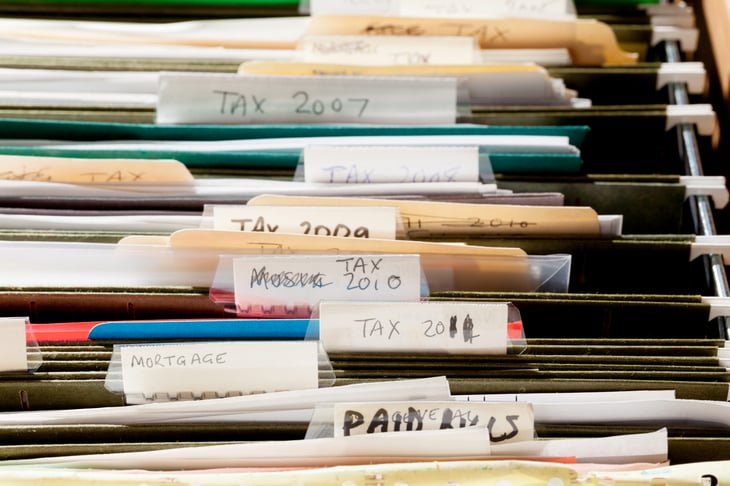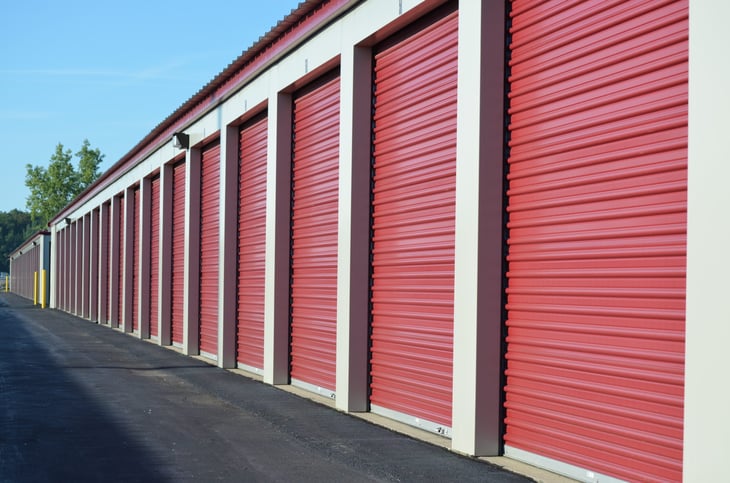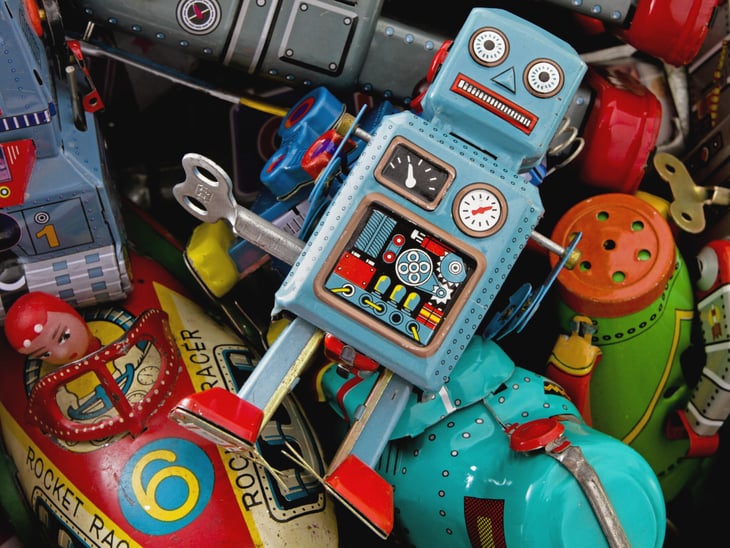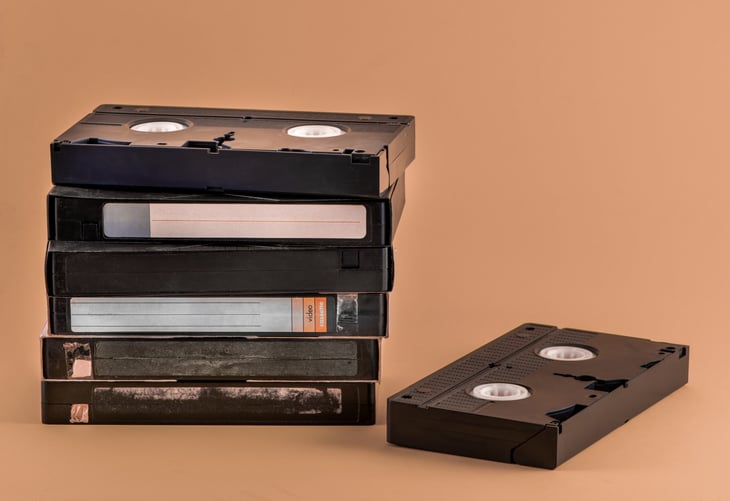10 Things Retirees Should Do Away With

Planning to downsize in retirement? Time to think about cleaning house, both figuratively and literally.
Face it: Most of us have way too much stuff, and a lot of it isn’t being used. Where will you put all those things in your new, smaller place?
Instead of hanging on to stuff you won’t need, start looking for things you can get rid of before you actually retire. You don’t have to give up everything – just the things that no longer make sense to keep.
Best-case scenario: You can sell some of these things and add the cash to your retirement nest egg. At the very least, you’ll sail into retirement with a streamlined lifestyle. Having fewer things can make more room in your head as well as your house.
1. Debt

Heading into retirement burdened by debt is a blueprint for financial disaster. If you can’t make all your payments while you’re still working, how will you meet your obligations on a fixed income?
First, figure out where the money is going right now by tracking your spending. All of your spending, not just the most obvious bills. “9 Overlooked Expenses That Ruin Your Budget” offers tips on identifying money leaks.
Next, create a debt repayment plan. You might choose the snowball method, debt consolidation, balance-transfer credit cards, a mortgage refinance – or a mix of these and other tactics.
Remember: Retirement is supposed to be relaxing. Pretty hard to relax when you can’t pay the bills.
2. Life insurance policies you no longer need

Here’s how people typically use life insurance, according to Money Talks News founder Stacy Johnson:
“They buy term insurance when they’re 30ish and have young kids. Should they die prematurely, the terms of the death benefit will take care of their family. They maintain the coverage until age 60 or so, when the kids are grown, on their own and the need for insurance fades. As they reach the end of the term and insurance starts getting expensive, they don’t need it anymore, so they drop it.”
If your kids are grown, do you really need to keep paying for insurance? Maybe, if you married very late in life and still have minor kids at home or are raising a grandchild. But maybe not.
Talk to your financial planner – not to an insurance salesperson, who likely works on commission – and ask about your options. Chances are you can drop the policy and put those dollars where they’ll do you more good.
3. Outdated documents

Open your file cabinets and take a stroll down memory lane. Still got the purchase agreement from the car you bought back in 1996? Bank statements from the Dark Ages, before you switched to digital documents?
Shredders were invented for just such an occasion.
Some things should never be destroyed. Among them are wills, titles, deeds, contracts or paperwork with raised seals, such as birth certificates. Scan these and store them digitally, and put the originals in a safe, fireproof location.
As for tax paperwork, Stacy says you should keep your returns themselves, in case you ever need proof you filed your taxes — though you can digitize your returns and shred the paper versions. It gets more complicated with supporting documents: Many you don’t need, but some you will want to keep. Stacy breaks this down in “How Long Should I Keep My Tax Returns?”
Note: Some paperwork should be kept updated, especially if it has to do with estate planning. For example, things may have changed – an inheritance from your parents, or grandchildren being born – since you wrote your will 10 years ago. You’ll find useful tips in “9 Documents That Are Essential to Planning Your Estate.”
4. Cars you no longer need

Now that you and your spouse/partner are about to retire, do you really need two vehicles? As in, do you really need the costs of insurance, gas and maintenance?
Even if they don’t drive it much, some people keep an “extra” vehicle for their adult kids to use when their own cars are in the shop. Or, they’re planning to give it to a grandchild once they get their permit.
But will your grandchild even want that Subaru? Parents.com reports that today’s teens are much less interested in driving. And be honest: How often do your offspring ask to borrow the car? (Besides, why is it your job to fix their lives?)
Think seriously about the long-term cost of maintaining an extra vehicle. Now is a good time to sell, since a shortage of both new and used vehicles has plagued dealers during the pandemic. You’re likely to get a good price – maybe even a better-than-new price.
Stop paying insurance, registration and maintenance on a car that isn’t going anywhere. Put that money in your pocket instead.
5. Storage unit

The only thing worse than letting storage eat a chunk of your monthly income is letting it eat a chunk of your fixed monthly income as a retiree.
And what’s in there, anyway? The dining-room set you inherited from your folks, your vinyl LP collection, the golf clubs you never got around to selling after your second knee surgery?
Some of that stuff might be saleable. If so, then get going on finding buyers. If not, time to get serious about weeding through your belongings. Ask yourself these two questions:
- Is what’s in there really worth paying for by the month?
- If it’s that valuable, why aren’t we using it?
6. Your kids’ outgrown items

Speaking of things that are crowding your house: Are you still hanging on to your children’s baby items, old toys, sports trophies, yearbooks, prom gowns and such?
If so, ask yourself this: Why?
Maybe you think your kids will want them someday, or that you’ll pass some of these items along to your grandchildren. Or, maybe you just never got around to clearing things out.
No time like the present! Ask your kids whether they want any of this stuff. Give them a time frame for picking it up, or paying to have it shipped. After that, you can either start charging them for storage space, or sell or donate what you can and pitch what’s left.
You don’t have to toss everything. One woman I know still has the outfit her baby wore home from the hospital and a small box of the child’s school paperwork. But you know what she doesn’t have? Pretty much everything else that kid used. She made room for what was valuable, and she dumped the rest.
7. Work clothes

You’re retiring, remember? Unless you’re planning to go back to work part-time, is there any reason to hang on to those power suits or steel-toed boots?
If you want to ditch the office wear, you might be able to make some money by taking the clothing to a consignment shop. Or you could look for a nonprofit that helps people find interview clothes to wear during their job search.
As for the RefrigiWear gear you wore as a Wyoming steamfitter, be honest: Will you really need this once you’ve retired to that Florida condo? Someone might buy that stuff if it’s in good shape. Otherwise, donate it or toss it.
8. Spare sets of tableware

Back in the day, it was common to sign up for a china and/or silver pattern when you got engaged and to buy fancy crystal drinkware to adorn the table on special occasions. So, how often have you actually used this stuff?
That’s what I thought.
Some people do pull out all the stops – and all the dishes – for big family gatherings, such as Thanksgiving dinner. But are you going to be able to host these giant events in your downsized digs? And more to the point, where will you store all this stuff between Thanksgivings?
While your kids might enjoy those gatherings, chances are they don’t want your dishware. Go ahead and ask, just to be sure. Then start researching. You’ll likely make some money, and your children won’t have to come up with diplomatic ways of saying, “Thanks, but no thanks.”
9. Other heirlooms

Sad but true: Your kids and grandkids probably don’t want the antique furniture that’s been passed down through generations. They probably don’t want your book collection or your fancy table linens, either.
A consignment shop or antique dealer might want some of your stuff, though. Take some pictures and make some inquiries.
If not, a thrift store might accept such items. You’ll be helping others in this way, so try to keep that in mind – and try not to guilt your kids. Maybe Grandma said it was “traditional” that the tea set go to the first granddaughter, but that doesn’t mean her granddaughter has to accept it. Remember: “Tradition” is just peer pressure from dead people.
10. Old tangible media

Yes, those Disney VHS tapes bring back fond memories of watching the movies with your kids. Maybe you’ve hung on to your grown kid’s collection of CDs and DVDs because … well, who knows why parents do the things they do?
Streaming video and music services, which you likely can get for free via your local library if you don’t already subscribe, tend to make old tangible movies and albums an unnecessary waste of space.
And if you’ve still got VHS tapes of children’s birthday parties or family reunions? Get them digitized! Tapes do break, after all — and your heirs might have a hard time watching them anyway, given that VHS players have gone the way of the dodo.
Photo services that transfer old tapes to DVDs or USB thumb drives include those of Costco, CVS, Walgreens and Walmart.
Disclosure: The information you read here is always objective. However, we sometimes receive compensation when you click links within our stories.
Like Article
